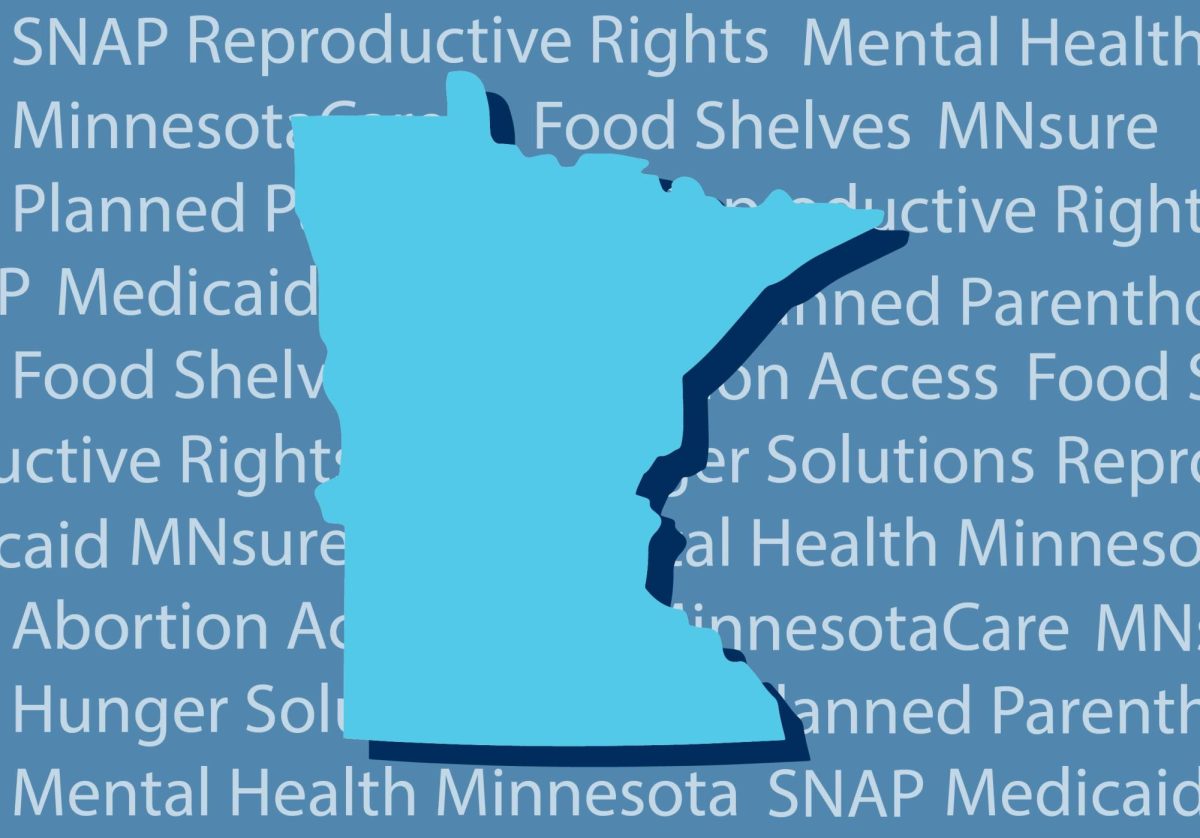On the last day of the legislative session, members of the Minnesota state legislature voted on a whopping $6.2 billion health and human services budget.
Among the policies that passed is a groundbreaking expansion in healthcare for undocumented people. Starting in 2025, all low-income people will be eligible to enroll in MinnesotaCare, regardless of their immigration status.
This policy is a major win for Minnesota, where 21.8% of non-U.S. citizens were uninsured in 2021.
Nationally, six states and the District of Columbia provide Medicaid coverage specifically to undocumented youth. Minnesota is one of only two states to allow all eligible low-income people to enroll in public insurance regardless of immigration status or age.
“When the people who are most vulnerable don’t have the services that they need, then we all get hurt,” said Cynthia Pando, PhD candidate in the Health Services Research, Policy and Administration program at the University of Minnesota. “Because we need everyone in this population to do well.”
Undocumented immigrants struggle nationally to access insurance. About two in five noncitizen immigrants in the United States were undocumented in 2021. In that year, 46% of undocumented immigrants nationwide were uninsured, compared to 8% of citizens.
Despite the numbers, policymakers have been slow to respond.
The policy passed in the legislature along party lines, one of many victories made possible by a Democratic majority among lawmakers. In sharp contrast, similar policies have stalled in other blue states while red states like Florida have been investing in antagonistic, anti-immigrant legislation. Policymakers, it seems, are no closer to a way forward on immigrant rights than they were before the pandemic.
The conflicting national debates are striking given the role immigrants, documented or not, have played in the last several years.
Immigrants played a major role in the COVID-19 response, serving as essential workers across a myriad of industries. In 2020, it was estimated that 6 million immigrants worked in frontline industries.
At the same time, immigrants were more vulnerable during the pandemic. In 2020, immigrant workers in frontline industries had lower incomes than their U.S.-born counterparts and were more likely to have children at home to care for. Immigrant communities also had less access to sick leave or paid time off if they got sick, despite being more exposed to COVID-19. And, if they did get sick, they were more likely to be uninsured.
These hardships were mounting for decades before the pandemic. They could have been avoided or mitigated at many points. Now, with the true pandemic behind us, lawmakers have the opportunity to follow Minnesota’s lead.
A few months ago, Minnesota became the 19th state to offer driver’s licenses to all residents, regardless of immigration status. Now, the MinnesotaCare expansion could open doors for thousands of uninsured residents to secure healthcare coverage.
It’s worth noting, however, that legal eligibility is not the only barrier to healthcare access in immigrant communities.
“Just because you’re eligible doesn’t mean that you’re gonna enroll,” Pando noted. “Just because you have good healthcare, doesn’t mean that you have good healthcare access.”
Pando highlighted the need for medical information in multiple languages, having interpreters available and addressing the stigma towards people with low-income insurance.
There are also drawbacks to MinnesotaCare itself that may impede people’s ability or willingness to enroll. MinnesotaCare, unlike Medicaid, requires regular premiums.
“That’s still a potential barrier for people,” Pando said.
An estimated 40,000 people will be eligible for coverage under the expansion. But its impact could go beyond that number.
Pando noted that the MinnesotaCare expansion “could also affect the access to care and the health insurance of their child, both undocumented or documented, citizen or not.”
For example, the program could increase child enrollment now that their parents don’t need to fear deportation in a clinic they have a legal right to be in.
There are a myriad of arguments to be made in support of this expansion. We can argue that healthcare for people in low-income, public-facing jobs is a matter of public well-being.
Immigrants participate in the labor force at a higher rate than U.S.-born workers and paid $4.5 billion in taxes in Minnesota in 2019. We can argue, as workers, they are entitled to benefits. They have earned them.
But these arguments speak to a need to defend the economic value of immigrants to a state or a nation. They reflect a national debate, not the people in any given community.
“I wish that we could think about undocumented immigrants as humans, not just a workforce,” Pando said. “I wish that was sufficient.”
Time will tell how this MinnesotaCare expansion is implemented and how many people will benefit from it. For now, I am grateful to be living in a state capable of passing such explicitly progressive, pro-immigrant policies. I hope that lawmakers nationwide can follow suit.












